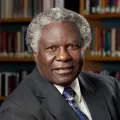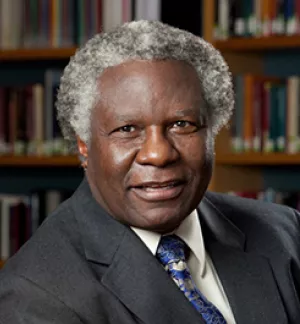When history is said to repeat itself, it is never for good reasons. George Bernard Shaw captured this when he said: “If history repeats itself, and the unexpected always happens, how incapable must Man be of learning from experience.”
The question of whether nations can learn from history nag policymakers around the world. Part of the problem is that history is handed down through a variety of interpretations that do not reflect reality. But contemporary history, if genuine presented, can offer policy makers with lessons they can learn from.
This is the central message in the newly released book, Lee Kuan Yew: The Grand Master’s Insights on China, the United States, and the World, by Graham Allison and Robert Blackwill, with Ali Wyne. This is a contemporary account of Lee Kuan Yew’s thinking as told through a series of interviews.
His central message is that history can repeat itself in a positive way if the world community pays attention to contemporary lessons. When Lee Kuan Yew took over as Prime Minister in 1959, Singapore’s annual per capital income was $400 and is now estimated at about $60,000.
Singapore’s lessons for other developing countries have yet to be fully appreciated. This is partly because much of the discussion has tended to focus on rhetorical arguments about relationships between governance and economic growth.
In fact, governance distinguished Singapore from its neighbors. As Lee Kuan Yew says: “They are not clean systems; we run clean systems. Their rule of law is wonky; we stick to it. We become reliable and credible to investors.”
His key message on the driving force behind Singapore’s success is simple: “The quality of a nation’s manpower resources is the single most important factor determining national competitiveness. It is the people’s innovativeness, entrepreneurship, team work, and their work ethic that gives them that sharp keen edge in competitiveness.”
He emphasizes the importance of knowledge in economic transformation but also rejects the classical separation between scholarship and entrepreneurship. “Those with good minds to be scholars should also be inventors, innovators, venture capitalists, and entrepreneurs; they must bring new products and services to the market to enrich the lives of people everywhere.”
This lesson from the evolution of Singapore’s educational system poses great challenges for most developing countries. They run outmoded educational systems that do not reflect the entrepreneurial demands of modern times.
How to reform educational systems to keep pace with contemporary challenges is one the most important leadership lessons that developing countries can learn from Singapore. In stating that “demography, not democracy, will be the most critical factor for security in the 21st century,” Lee Kuan Yew emphasizes his belief in the supremacy of the quality of human capital.
He connects this to three attributes that he considers vital for global competitiveness: entrepreneurship (seeking out opportunities and taking calculated risks); innovation (creating new products and processes that add value); and management (opening new markets and distribution channels).
Probably the most enduring theme in Lee Kuan Yew’s leadership style and conviction is the role of learning. His vision of workers of the future reflects greater autonomy “to manage their own control systems, supervise themselves, and take upon themselves the responsibility to upgrade. They must be disciplined enough to think on their own and to seek to excel without someone breathing down their neck.”
This lesson might appear to run counter to popular perceptions about Lee Kuan Yew’s own leadership style. But he expects the same kind of “creativity of the leadership, its willingness to learn from experience elsewhere, to implement good ideas quickly and decisively through an efficient public service.”
In addition, he argues for a leadership style that can “convince the majority of people that tough reforms are worth taking, that decide a country’s development and progress.”
One of the critical areas that require tough decisions include large infrastructure investments that lay the foundations for economic growth. Singapore built “world-class infrastructure…good communications by air, by sea, by cable, by satellite, and now over the Internet.” But such long-term investments demand not only having long-term economic vision, but consistence and predictability in the rule of law.
Lee Kuan Yew remains optimistic about the economic future of developing countries: “There is no reason why third world leaders cannot succeed…if they can maintain social order, educate their people, maintain peace with their neighbors, and gain the confidence of investors by upholding the rule of law.”
To achieve success, these leaders must have Lee Kuan Yew’s determination, consistency, and persistence. They must set out to do something concrete and cannot just focus on the trappings of statesmanship. His advice is simple: “Anyone who thinks he is a statesman needs to see a psychiatrist.”
For developing countries, history can repeat itself, but not necessarily in the caustically pessimistic way that Karl Marx describes when he said it repeats itself “first as tragedy, second as farce.” Lee Kuan Yew presents a more optimistic outlook. His insights are an important source of inspiration for present and future leaders.
Juma, Calestous. “Development: Learning from Singapore’s Lee Kuan Yew.” January 30, 2013


